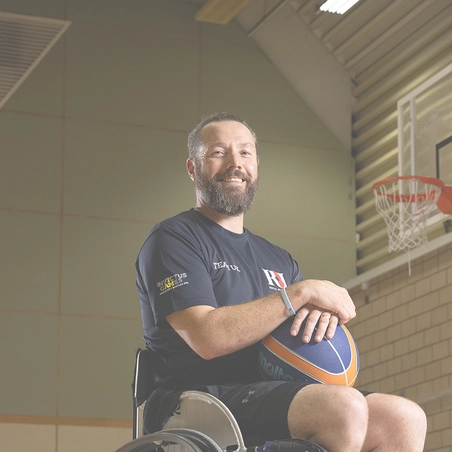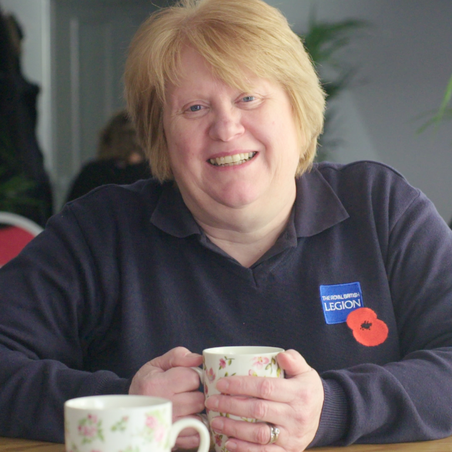On this page you will find information about:
- How dementia may be tested or assessed.
- What support is available for those diagnosed with dementia.
- Local and national organisations that can help.
Nearly one million people are living with dementia in the UK, and there are many organisations out there equipped to support you through your experience. You are not alone.
Dementia has many symptoms, including poor memory, forgetfulness, getting lost in familiar places, mood swings, confusion and repeating oneself regularly. Over time, it can affect a person's language and behaviour. While every person who lives with dementia, and their family and friends, have their own unique experience of the condition, many struggle with the loss of independence and the stigma that surrounds the illness.
If you are concerned that you or someone you know has shown symptoms such as these, contact your local GP.
Find out how to contact your local GP on the NHS website.
Read our information guide on how to register with an NHS GP here on the RBL website.
Tests and assessments
Dementia is often difficult to diagnose, especially in the early stages. Tests may include:
- Looking at your past - medical history, education, and employment.
- Physical examinations - including heart and lung function and blood pressure.
- Reviewing any medication you may be prescribed.
- Assessing your mental abilities.
- Blood tests - to check it is not another illness causing the symptoms.
- Brain scans - CT scans or MRI scans to check the physical condition of your brain.
It is important that carers, friends and relatives are invited to give a history of the problems to help with the assessment.
The assessment process will differ depending on the services that are available in your area. Your GP may refer you to a memory service, a local mental health service or to a neurologist for an assessment. These professionals may conduct a home visit to assess you in your own home if needed.
Following the assessment, the specialist will decide on the best course of action for you. Dementia Advisors are often attached to GP surgeries and will help signpost you onto your next steps following diagnosis.
What support options are available for people diagnosed with dementia?
The support you can receive will depend on the services that are available in your area. General types of support include:
- day centres
- social services
- residential care
- support groups and Memory Cafes.
Support from the Royal British Legion
The Royal British Legion is here for people in the Armed Forces community, from their first day of service onwards. Whether you are currently serving, a veteran, or a family member, you may be eligible for support.
Admiral Nurses
Admiral Nurses are specialist dementia nurses who work with the families and carers of people with dementia in the Armed Forces community. The scheme is facilitated by the Royal British Legion in partnership with Dementia UK.
To request help to look after a loved one with dementia, please get in touch using the contact details below.
Freephone telephone: 0808 802 8080
Email: [email protected]
Royal British Legion care homes
If you are struggling to cope with living at home, you may benefit from moving into a care home. Care homes allow residents to live in comfort with 24-hour staff support and meal provision.
Five of RBL's six care homes provide dementia personal care.
Learn more about care homes for those living with dementia here on the RBL Knowledge Base.
To find out more about the support the RBL could offer you, contact us via
Telephone: 0808 802 8080
Telephone overseas: +44 (0)20 3376 8080
Calls are free from UK landlines and main mobile networks
Email: [email protected]
How do I find out about the support available in my area?
- Talk to your GP - your GP will be able to provide you with information and referrals to relevant local services.
- Contact Admiral Nurses through Dementia UK - who will be able to provide information on the services available where you live.
- Get in touch with your local social services - who can advise you on the services available.
- Contact Dementia UK - who can support you.
- Contact the Alzheimer's Society - who can provide information about dementia services in your area.
Find out how to register with civilian GP using our information guide here on the RBL website.
Support for family carers
There are many dementia-specialist organisations here to support family carers.
Dementia UK
Dementia UK is a charity that specialises in practically supporting individuals and their families experiencing dementia. Dementia UK can also put you in contact with an Admiral Nurse if neither the carer or the person with dementia have served in the armed forces.
Get in touch
Contact the Dementia UK team to access support via:
Telephone: 0800 888 6678
Calls are free from UK landlines and main mobile networks
Email: [email protected]
The Dementia UK Helpline team are available 9am to 9pm Monday to Friday, and 9am-5pm Saturdays and Sundays.
Carers groups
Carers groups offer a way of getting advice and sharing experiences with other carers in a similar situation. A number of different organisations host such peer support groups, including Carers UK, Alzheimer's Society and Carers Trust.
Explore Carers UK's online meetups on their website.
Connect with other carers on the Alzheimer's Society's online forum.
Search your town, city or postcode to find Carer Services near you on the Carers Trust website.
Social services
Social services can help with a variety of needs, including organising for an extra carer to assist with day-to-day tasks. To get in touch with your local social services contact your local authority.
Age UK
Age UK offer advice on benefits, attendance allowance claims, managing budgets and money issues.
For more information and the full range of services available, visit the Age UK website.
Get in touch
Get in touch with the Age UK helpline by:
Telephone: 0800 678 1602
Lines are open 8am to 7pm, 365 days a year to give you free and independent advice.
The Alzheimer's Society
The Alzheimer's Society offers various services and resources to help carers.
Get in touch
Contact Alzheimer's Society's dementia support helpline by:
Telephone: 0333 1503 456
Staff are on hand to support you from 9am to 8pm Monday to Wednesday, 9am to 5pm Thursdays and Fridays, and from 10am to 4pm on Saturday and Sunday.



.jpg?sfvrsn=acb3c3e8_4&method=CropCropArguments&width=452&height=452&Signature=D5BAC960D530204FCEBE5677AF5088529441715C)

